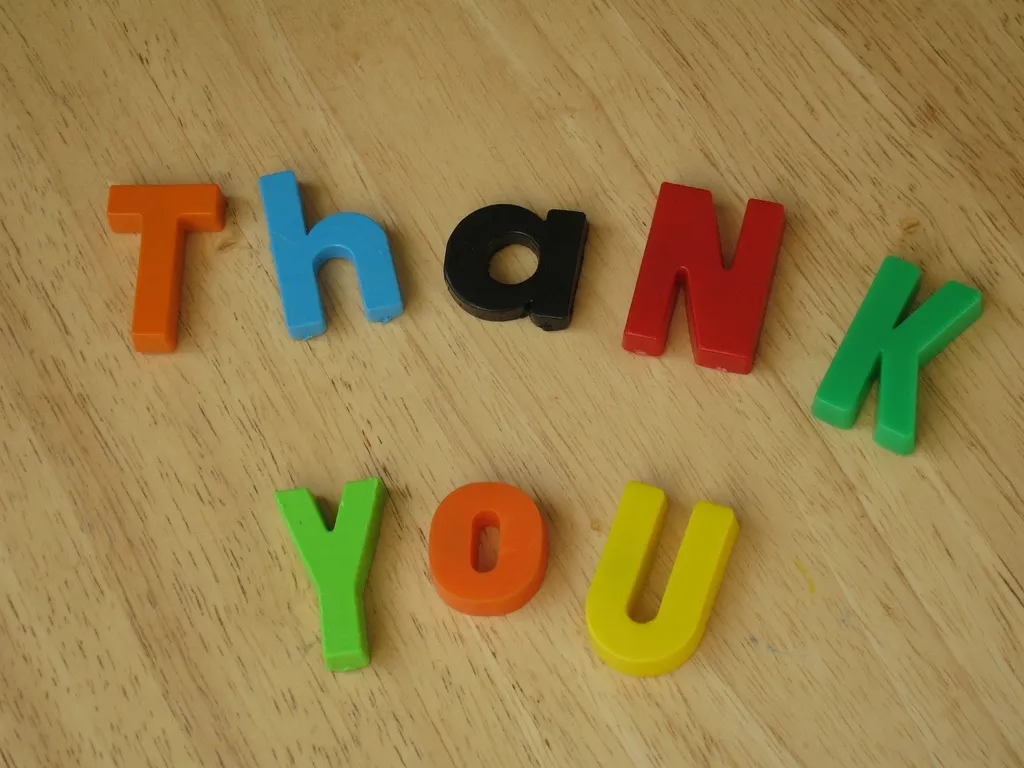Thank You, Thomas
Down the “thank you” rabbit hole

It has been nearly fifteen years since the phrase “Thank you, Thomas” took on anything beyond its most obvious meaning.
Almost exactly midway into the first year of the mid-aughts, I began a new job. Like many I’d had before, it was an office job; unlike most office jobs, it was shift work. Twelve hours per shift. Three days one week, four days the next. Two days on, two days off, three days on, two days off, two days on, three days off. Sometimes, day shift; sometimes, night.
When you work a twelve-hour shift with the same two people for months on end, you get to talking sometimes. And so it was that one of my fellow colleagues, Ron, and I got to talking one day. One of us—I think it was me—brought up the idea that expressing gratitude for simple tasks is an important daily act. Your husband made your coffee: “Thank you, Chris.” Your wife washed your car: “Thank you, Jodi.” Your co-worker did his job the way he was supposed to do it: “Thank you, Donovan.”
One of the key elements of this particular practice of giving thanks is that it presupposes you are thanking someone for small acts which are already part of his or her normal work duties, household chores, and so on. At first glance, such tasks are expected and do not require recognition; but acknowledging even the smallest job can make a person feel appreciated—or loved. What’s more, the act of giving thanks can make you feel good for having brightened someone else’s day, among other benefits.
Ron and I began first thanking each other, then other colleagues, for performing our normal job duties, as well as for special tasks and favours. Chris bought me lunch one day. “Thank you, Chris.” Rhonda completed a report which I had dreaded doing. “Thank you, Rhonda.”
Over time, as often happens within these sorts of linguistic micro-cultures, we added new rules to the game:
Level I
The thanking must be done using the longest and most formal version of the person’s name, even—nay, especially—if the person never uses it. “Thank you, Fred” becomes “Thank you, Frederick.” “Thank you, Shaq” becomes “Thank you, Shaquille.” In some cases, the longer form must be employed even when it is not the legal name: “Thank you, Francis,” when his given name is “Frank.” “Thank you, Margaret,” when her given name is “Peggy.”
Level II
The tone of voice must be formal, but with a tinge of humor. (Think professorial, but when the professor is addressing you a bit wryly.)
Level III
You must thank everyone present in the room, in sequence, to complete an act of thanking. When Bob picks up lunch for you, himself, Sue, and Ming, you are to say: “Thank you, Robert. Thank you, Susannah. Thank you, Mingward.”
Level IV
The thanking becomes a sort of ritualistic greeting. When anyone enters the room, she or he is to thank everyone, and each person is to thank everyone else in return. Bob walks into the office, saying “Thank you, Susannah. Thank you, Mingward.” Ming replies, “Thank you, Robert. Thank you, Susannah.” Sue replies, “Thank you, Robert. Thank you, Mingward.”
Level V
Where possible, be sure to include people who are not in the room, such as family, religious, or historical figures, as appropriate: “Thank you, Robert. Thank you, Susannah. Thank you, Mingward. Thank you, Mother. Thank you, Father. Thank you, Jesus Christ. Thank you, Lord Krishna. Thank you, Abraham Lincoln.”
Level VI
Begin to incorporate the practice into all emails, texts, and other written communications, as both a salutation and a closing:
Thank you Robert,
As discussed yesterday, the boss would like you to work this Saturday, if possible.
Thank you Robert,
–Susannah
P.S. Thank you, Thomas Edward Lawrence aka Lawrence of Arabia
Level VII
You may use the abbreviated form “TyR” in writing, and sometimes in speech. For example, a valid text to your friend Bob, who is married to Sue, could be: “TyR, TyS, TyJC. We hope you’ll be able to attend our daughter’s baptism next Sunday. TyR, TyS, TyJC.”
To this day, a few of my former colleagues and I maintain the practice of using the “thank you” greeting whenever we text or talk. And, jocularity aside, I like to think the lesson of expressing gratitude in earnest has stuck with all of us.
Epilogue
Years ago, I was briefly in the habit of going out to dinner with friends on an almost daily basis. Typically, we’d eat at a restaurant in the local grocery store. One of the servers there had the odd habit of saying “thank you” after every interaction. She gives me a glass of water: “Thank you.” You order your meal: “Thank you.” She takes away an empty plate: “Thank you.”
As you may have guessed, we began referring to her as Thank You—yes, in verbal italics. Back then, this was merely humorous. Now, I think Thank You might have been onto something.





 Support Us
Support Us
Comments ()